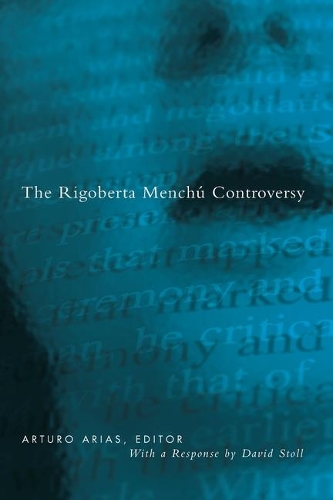
Rigoberta Menchu Controversy
(Paperback)
Publishing Details
Rigoberta Menchu Controversy
By (Author) Arturo Arias
University of Minnesota Press
University of Minnesota Press
27th March 2001
United States
Classifications
Tertiary Education
Non Fiction
Popular beliefs
972.8100497415
Physical Properties
Paperback
432
Width 149mm, Height 229mm, Spine 28mm
Description
Guatemalan indigenous rights activist Rigoberta Menchu first came to international prominence following the 1983 publication of her memoir, I, Rigoberta Menchu, which chronicled in compelling detail the violence and misery that she and her people suffered during her country's brutal civil war. The book focused world attention on Guatemala and led to her being awarded the Nobel Peace Prize in 1992. In 1999, a book by David Stoll challenged the veracity of key details in Menchu's account, generating a storm of controversy. Journalists and scholars squared off regarding whether Menchu had lied about her past and, if so, what that would mean about the larger truths revealed in her book.
In The Rigoberta Menchu Controversy, Arturo Arias has assembled a casebook that offers a balanced perspective on the debate. The first section of this volume collects the primary documents -- newspaper articles, interviews, and official statements -- in which the debate raged, many translated into English for the first time. In the second section, a distinguished group of international scholars assesses the political, historical, and cultural contexts of the debate, and considers its implications for such issues as the "culture wars", historical truth, and the politics of memory. Also included is a new essay by David Stoll in which he responds to his critics.
